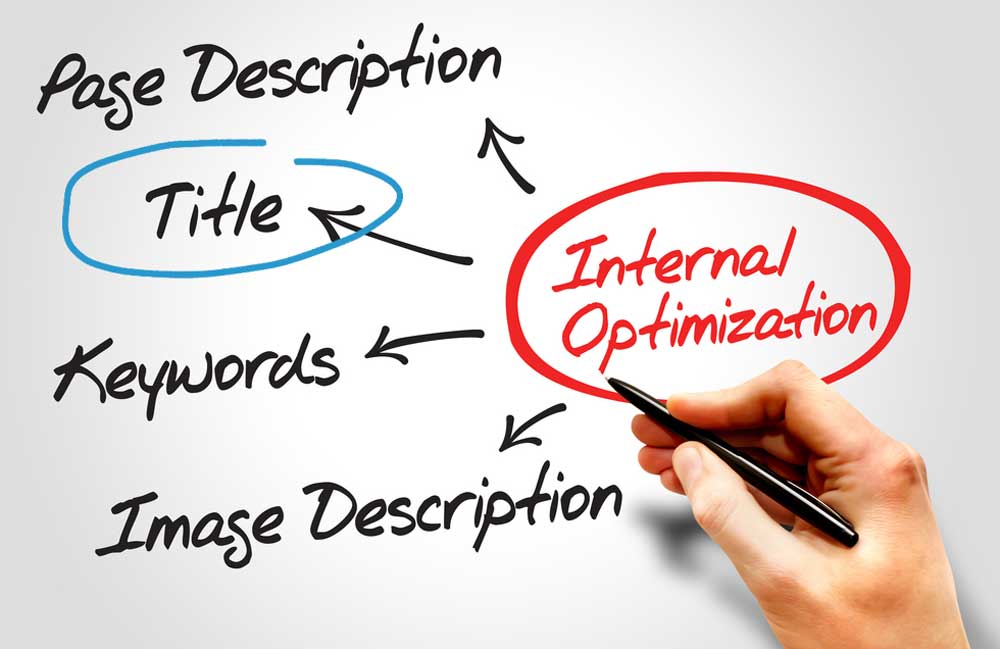HTML is not exactly a coding language, but it is a structural language used on the Internet so that sections, paragraphs, headings, and links can be created and structured for web pages.
Working with HTML involves using basic code structures such as tags and attributes, in order to display the elements of a web page.
It’s a very straightforward language which can quickly be learned by even a beginner, and since it first appeared, it has undergone several different enhancements, so that the current version in use is HTML 5.

One of the fundamental tags used in HTML is the title tag, which identifies what any given web page is all about. This discussion will explore the tag in more detail, and why it’s so critical to any web page where it appears.
What is an SEO Title Tag?
If you’ve ever taken a computer programming course, you are likely to be familiar with hypertext markup language (HTML), which is a structural language used extensively on the Internet.
HTML consists of a formalized method of displaying specific elements on an Internet page by describing attributes associated with that element, which impact how it appears.
In the case of the title tag, this is a specific HTML element which displays the name of that web page, and this is what will be shown on a search engine results page.
This can be clicked on, so the user will be able to navigate to that particular web page. The title tag of any web page should be a meaningful and accurate description of the content that appears on that page, and it should convey in a concise manner what the user can expect to find on that page.
Why is an SEO Title Tag so Important?
The biggest reason that this tag is so important is because you want people to click on it, so they can navigate to your website and learn all about your company and its products and services. If it is not very appealing and it does not entice the user, it will simply be ignored and the user will move on to other possibilities. This being so, there are two main objectives that you should always strive for in creating the most effective possible titles.
Your title should help you to rank for a specific keyword, and it should be so appealing that users will want to click on it and navigate to your website.
It can have a direct impact on your search engine ranking because when more and more people click on your content, that gets noticed by Google, and it will automatically assign a higher ranking to your website.
Of course, it also works just the opposite, so that if no one is clicking on your content, it can cause you to slide down in the search engine rankings.
No matter how good the content on your website is, it will be virtually useless unless you have a title that is compelling enough to make users want to click on it and visit your website.
The headline of your web page is literally the entry point to your website, and you can actually think of it as the door on a physical storefront. Given the extreme importance of these tags, you should follow best practices in an attempt to create the optimal title for your web page.
For example, it is known that by limiting it to about 70 characters, you have the best chance of attracting users’ attention.
Don’t get carried away trying to be too descriptive with it, because more than likely you will be pushing users away rather than attracting them.
It’s also a good idea to use some of the keywords which will be used in your page content, and the keywords which you should endeavor to use are those which are the most targeted phrases for your business.
If possible, you should incorporate long-tail keywords, because they will help you to establish a better search engine ranking sooner than shorter keywords will.
Over a period of time, you’ll be able to build backlinks on those shorter keywords so that they can also rank well in the search engines. When using multi-phrase titles, it’s a good practice to separate them with hyphens, since this is the most commonly used practice on the Internet, and they tend to attract the most attention.
Other important practices involving this tag should be to include it in an H1 tag, to include the titles in your meta description, and to use it in your URL, so as to help your search engine ranking. It’s fairly common practice to use your title separated by dashes in the URL of a particular website.
Don’t forget to use your keywords at least once in the content of the page where it appears, and make sure to use the keywords for internal links.
All these practices can increase the effectiveness of your web page titles, and by doing that, you will greatly increase the likelihood that users will want to navigate your website.

How Do I Set Up My Tags?
The first thing you should do when you’re setting up your tags is to decide on a primary keyword which you intend to target. In some cases, this will actually be a general topic rather than a keyword, because you may be trying to rank your page for several keywords which have related variations and terms, such as long-tail keywords.
In any case, it’s important that you decide on what your primary focus will be in the title, so you can be sure and include that in some form.
Next, you should list all the long-tail variations on that primary topic or keyword which you have selected as your target keyword.
The reason for this is that it will generally take quite a while to establish a good search engine ranking for your primary keyword, but you can begin getting significant traffic from long-tail keywords much more quickly.
It’s usually fairly easy to incorporate long-tail keywords in your tag without making it seem unnatural or forced.
The next step calls for creating a draft of your basic tag, which should focus on descriptiveness while also being short and concise, and of course including the keywords you selected.
Try to incorporate something unique and appealing to consumers in your title as the last step in your tag creation process.
For instance, you could use words like ‘complete’ or ‘definitive’ to indicate the depth of your content, you could indicate that your content will be a list of some type, you could emphasize the brevity or conciseness of your content, or you could somehow convey the fact that your content is fresh and new.
All these things will have built-in appeal to consumers, and it just might make all the difference between them selecting your website or one of your competitors.
The tricky thing about composing titles is that you’re obliged to write for both humans and for search engines because both will have a huge impact on how popular your website becomes. If you write a headline that could be extremely appealing to users, but which search engines consider inferior, the users might never see your content on the first page of results, so they wouldn’t even have the opportunity to click on it.
This being the case, it simply points up the fact that search engine optimization (SEO) is absolutely critical to satisfying both search engines and human readers.
You might consider it something of a waste, or a little bit of overkill to engage the services of SEO professionals, but keep in mind the tremendous impact that your titles can have on getting your business noticed.
This is something you absolutely have to get right, or your web page could wallow in obscurity indefinitely. In many cases, it will be well worth your while to let the professionals handle the creation of the most effective titles for your web pages, so you’re sure you’re doing everything possible to attract the right kind of visitors.
Make Sure Your Title Tags Communicate the Correct Information
Given the tremendous importance of crafting compelling and informative titles, you might want to consider engaging the services of SEO experts who know exactly how to handle this.
Writing titles that appeal to both humans and search engines is something of an art form, and SEO professionals are quite familiar with how to go about this.
Contact us at BizIQ when you’re ready to take your business to the next level and bring in serious web traffic which will lead to more conversions.









